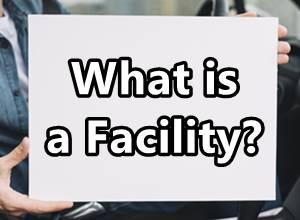Uncommitted Facility
The Uncommitted Facility term refers to an agreement between a borrower and a lender, in which the latter determines the amount of money s/he will lend to the former at a specific time period. Usually, the funding is made available to the borrower for a short duration.
Unlike a committed facility, an Uncommitted term involves precisely defined terms and conditions, which are to be imposed on the borrower and are set by the lender. Since uncommitted facilities are given for a short term, businesses having fluctuating revenues can use them to meet their temporary or seasonal financial needs.

For example, a company can use the funding received for uncommitted facilities for -
- One-off or single transactions
- Paying creditors to gain trade discounts
- Meeting several payroll obligations
Apart from this, term loans are also common types of committed facilities, and they include working capital and equipment loans. Since an uncommitted facility may include a working capital feature, also called an overdraft, it can be paid on demand.
Working of Uncommitted Facility
Small businesses and startups may struggle to have a stable cash flow and get enough finances to manage their core processes. An uncommitted facility can come to the rescue by helping those companies operate seamlessly and establish a strong market presence.
Additionally, these facilities are usually much cheaper to set up and arrange compared to committed ones. It is because the lender doesn’t have an obligation to extend the provided loan. Since the funding is made available to the borrower for a short term, it is associated with relatively smaller credit risk.
Besides, the funds borrowed under uncommitted facilities are generally not repaid on any particular repayment schedule. However, they must be repaid from the Bank on-demand. These short-term funding opportunities can help businesses meet their temporary expenses or payroll obligations, since they may not always have the working capital to do so.
Moreover, uncommitted facilities can also save a company from the hassles of opting for big loans that come with numerous obligations and stricter repayment schedules.
Talk to our investment specialist
Why Does it Matter?
Since uncommitted facilities don’t come with specific terms and conditions, they offer much more flexibility to the borrowers. These facilities are commonly used for meeting a company’s temporary finance requirements.
However, uncommitted facilities might cost more since the borrower won’t require a Collateral. Also, the lender doesn’t get many benefits from the account in case the borrower makes little use of the facility.
Businesses that don’t often have sound financial statements, or don’t have the required working capital, or aren’t quite established yet can be benefitted from uncommitted facilities.
Example of Uncommitted Facility
Uncommitted, overdraft, or working capital facilities can help a company address its short-term financial needs and cash flow issues. In this case, a financial institution will decide whether to lend the money and what should be its limit.
Furthermore, an uncommitted facility is not suitable for meeting a major acquisition or other long-term financial purposes, since it is generally payable on-demand from the bank. The lender would not usually call in an overdraft, unless s/he feels that the borrower’s financial status or spending habits are of grave concern.
All efforts have been made to ensure the information provided here is accurate. However, no guarantees are made regarding correctness of data. Please verify with scheme information document before making any investment.







